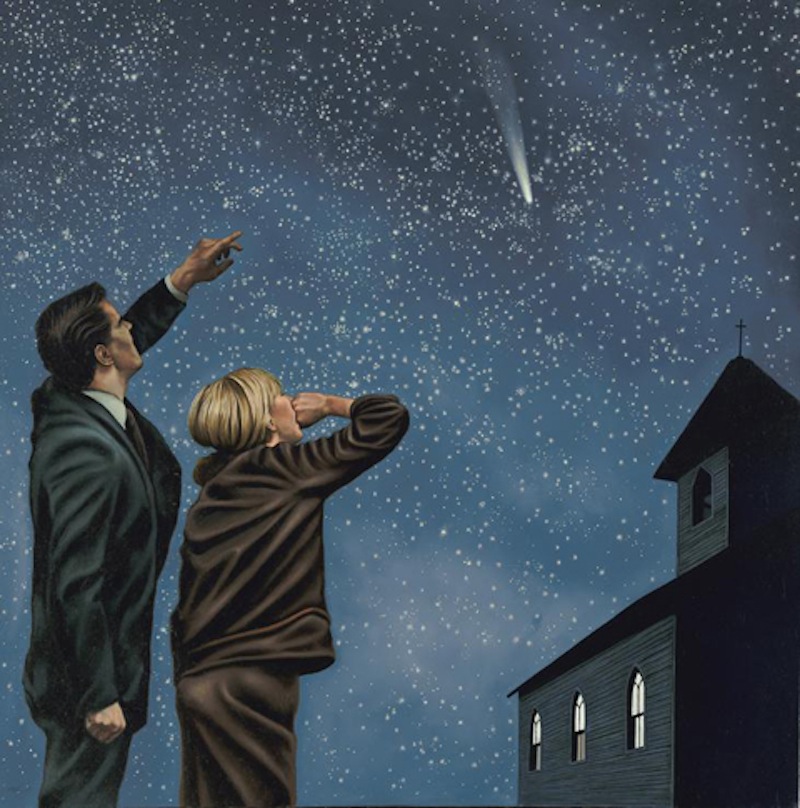Teasing, Simple Sight
Aaron Guest
 The doctor told me people with my eye condition are odd, a bit off, weird. She added quickly that I was a rarity, a “normal one.” Kerotoconus—the eye condition causing my eyes to bulge out—makes you feel far from normal. It happens slowly, but for a contact wearer, kerotoconus makes the world go soft at the edges. You fuss at your eyes. Rub them. Wet your fingertips with your own saliva and massage them. Develop twitches. Blink, often. Incessantly squint. Anything to try to see the hard edges of things. It drives you mad.
The doctor told me people with my eye condition are odd, a bit off, weird. She added quickly that I was a rarity, a “normal one.” Kerotoconus—the eye condition causing my eyes to bulge out—makes you feel far from normal. It happens slowly, but for a contact wearer, kerotoconus makes the world go soft at the edges. You fuss at your eyes. Rub them. Wet your fingertips with your own saliva and massage them. Develop twitches. Blink, often. Incessantly squint. Anything to try to see the hard edges of things. It drives you mad.
During an “On Being” podcast recently, James Martin talked about Ignatian Spirituality. He exampled one aspect of the practice whereby we press ourselves into a biblical passage. A kind of midrash accomplished through prayer and contemplation. An opportunity for a story to be seen differently and anew, across the mire of time. There I am, standing by the side of the road in Jericho, squinting, wetting my eyelids, begging and pleading for sight.
I have these new hard-shell contact lenses now—lenses that require me to both remove and put them in with something affectionately known as an “Eye Plunger.” The results are astounding. Words emerge from across the length of a room. I stare hawk-like at a computer screen, my child’s face, the foam spilling over a mug of beer. I can see. I have perfect vision.
In “Habit of Perfection” Gerard Manley Hopkins writes, “Be shellèd, eyes, with double dark/And find the uncreated light.” One can imagine Jesus leaning in and breathing these very words on that road near Jericho. An incantation for a man viewed as abnormal by the world. Maybe it took the man a few days to get all the caked mud out. To overcome the facial tics. The lifetime of odd quirks you develop when you are trying desperately to see.
Did the once blind man ever return to see Jesus? Jesus who said, “I am the light of the world.” Jesus, who with divine spit and the “ruck and reel” of this earth, “Coils, keeps, and teases simple sight.”
